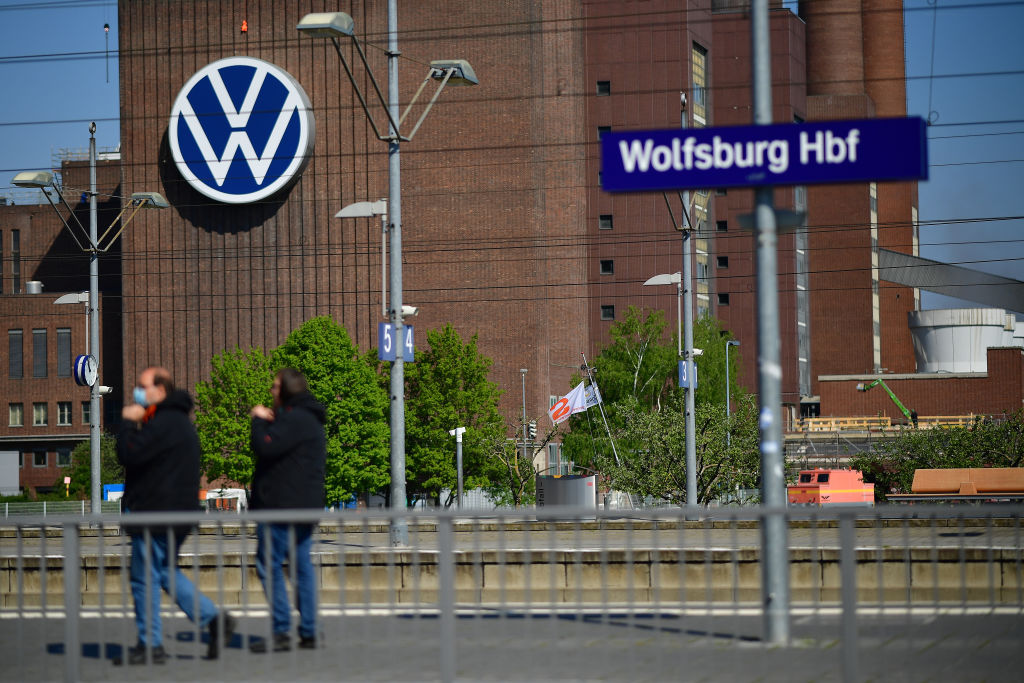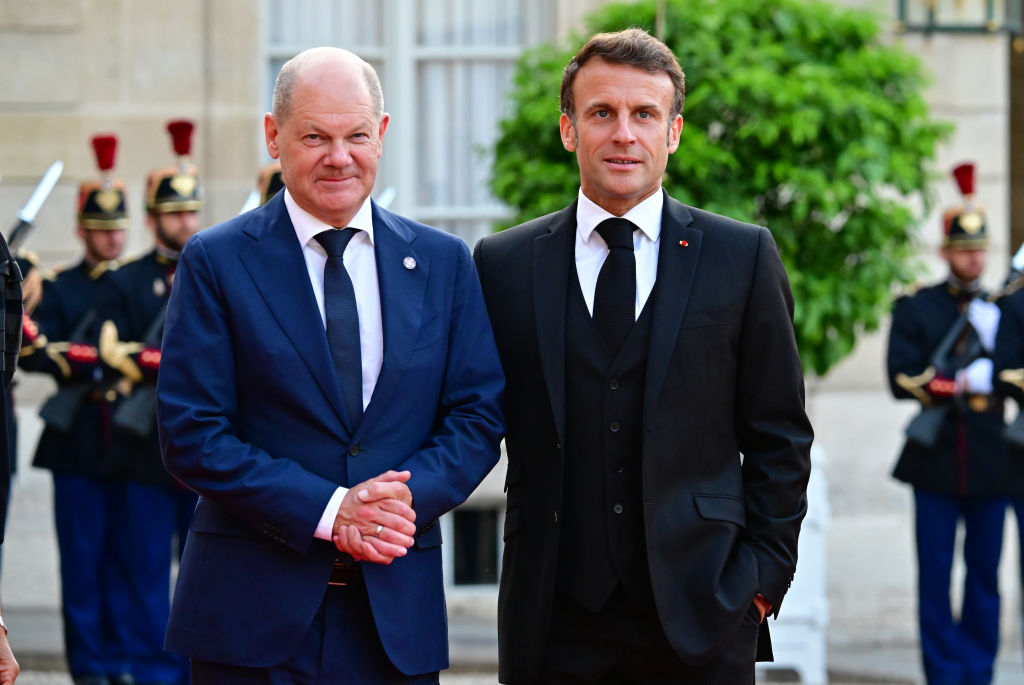German Chancellor Olaf Scholz seized on Joe Biden’s final visit to Europe last week to organise a conclave of key leaders on Ukraine. President Macron, Prime Minister Keir Starmer and Scholz met with the US President in Berlin to hammer out a durable plan of support for Kyiv, meaning one that could survive the increasingly likely return of Donald Trump. Would this be the moment Western leaders might grasp the nettle and make long-term political and military commitments to the defence of Ukraine? Would they finally unleash long range weapons against Russian targets? Agree on long-term defence financing that would allow European arms makers to ramp up production? Or perhaps even push for prompt NATO membership for Ukraine? Alas for fans of decisive action, these Western whales begat a sprat: a new loan wrapped in a vaporous statement pledging unwavering support for Kyiv.
Where was Polish PM Donald Tusk? The former President of the European Council rescued his country from the EU’s naughty step, yet somehow remained uninvited to Berlin, reportedly at the insistence of the German Chancellor. Poland is a front-line state in this conflict, hosts millions of Ukrainian refugees, serves as the major transhipment point for Western weapons, and owns the only land army in the EU that frightens the Kremlin. Tusk’s absence was at best puzzling and at worst counterproductive: Western assistance to Ukraine must literally go through Poland.
A less feeble US president would have insisted on Tusk’s presence in Berlin, and with good reason. Poland has been right about Putin’s Russia for over a decade now, and seeks to stiffen European spines with a dose of healthy Realpolitik. Poland shames the rest of Europe and particularly Germany with defence spending well in excess of NATO’s 2 per cent of GDP target. Perhaps the confrontation-averse chancellor feared a lecture by the Polish PM on German shortcomings, or worse, the prospect of Tusk cornering Biden and persuading him to lift restrictions on the use of Western weapons. Whatever the reason, Scholz’s exclusion of Tusk ensured a feckless result in Berlin.
If the Chancellor’s intent was to “Trump-proof” Western support for Kyiv, the meeting in Berlin fumbled a good opportunity to fashion an agreement prior to the arrival of a new Trump administration, which will surely seek to side-line Europe in its pursuit of its own deal. An aggressive diplomatic approach to the conflict, placed in train well before a January inauguration, would have given Europe some standing to take the lead, or at least “hold the pen” on talks to end the fighting.
Could Europe fashion a proposal that might appeal to Trump? It was surely within the grasp of the leaders meeting in Berlin. The man adores a deal, and a decent proposal could forestall his stated intent to end the war in 24 hours by imposing terms on Ukraine. Given the irreconcilable territorial demands of Moscow and Kyiv, no agreement today is going to settle the conflict permanently. But Europe could propose a cessation of hostilities along a frozen and monitored line of conflict, without recognition of Russian territorial conquests, combined with specific offers to each of the combatants. In the case of Ukraine, Europe can offer a guarantee of EU accession on an expedited timeline, complete with lucrative regional development aid and farm subsidies. In exchange for an acceptance that Ukraine will become an EU member state, Russia would gain a freeze on Ukraine’s NATO candidacy. The stick to enforce a ceasefire would be an immediate resumption of Ukraine’s NATO candidacy should Russia violate the terms of the agreement. A Ukraine in NATO means American armoured brigades rolling around east of the Dnipro, something even the most hardened imperialists in the Kremlin want to avoid. The longer term fate of Russian occupied territory could be booted into the tall grass, perhaps in the form of internationally supervised referenda in ten year’s time. While the West would need to endure desperate crowing by the Kremlin over its supposed victory in the aftermath of a ceasefire, it could take solace in the economic transformation of Ukraine once it joins the EU. A decade from now, Putin will be dead and gone, and the prosperity of Ukraine will compare favourably to poverty and misrule in the Russian occupied eastern territories. In the meantime, the EU could lead a concerted effort to arm Ukraine to a level capable of deterring further Russian aggression.
Yet this or a similarly ambitious proposal appears beyond the political grasp of Scholz and Macron, who remain mired in ugly domestic battles. Their lack of a working relationship leaves the EU with a void where its strategic brain should be, allowing a chance to fashion a robust approach to ending the war on European terms to slip away before the US election. Last week’s meeting in Berlin was a testament to lowest common denominator European politics, where agreements, no matter how vapid, are prized above substance. Vladimir Putin no doubt read last week’s communique as a reaffirmation of the West’s commitment to do no more than fight to the last Ukrainian soldier, something he believes he can ensure.





Brussels forcing production of EV cars nobody wants, sales crash 70 per cent in Germany